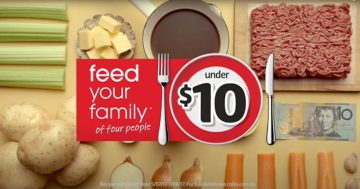
Woolworths: “We firmly believe healthy retailer and supplier relationships are key to the continued success of our sector, as well as serving the needs of millions of customers.” Photo: Michelle Kroll.
The Federal Government has announced it will accept all the recommendations of a review into supermarket pricing by former Labor minister Craig Emerson, and will make the Food and Grocery Code of Conduct mandatory.
The review was established in January to investigate whether the current voluntary code should be toughened after accusations the bigger supermarkets had been price-gouging and not passing on lower farmgate prices to their customers.
The voluntary code of conduct was introduced to improve standards of business behaviour in the food and grocery sector but is essentially non-binding.
The government says it will adopt all of Dr Emerson’s recommendations to toughen the code as part of what it describes as a wide-ranging cost-of-living crackdown on anti-competitive behaviour in the food and grocery sector.
A joint statement from Treasurer Jim Chalmers, Assistant Minister for Competition, Charities and Treasury and Assistant Minister for Employment Andrew Leigh, and Minister for Agriculture, Fisheries and Forestry Murray Watt said the strengthened code of conduct is about getting a fair go for families and a fair go for farmers.
“Our efforts will help to ensure our supermarkets are as competitive as they can be so Australians get the best prices possible,” they said.
“We’re cracking down on anti-competitive behaviour in the supermarkets sector so people get fairer prices at the checkout.”
They said the Emerson Review found that the current voluntary code of conduct is failing to address the imbalance of bargaining power between supermarkets and their suppliers, including farmers, and that suppliers fear retribution from supermarkets if they raise concerns or exercise their rights under the code.
The recommendations to be implemented include:
- Making the code mandatory for all supermarkets with an annual Australian revenue of greater than $5 billion
- Strengthening formal and informal dispute-resolution arrangements
- Introducing penalties for the more harmful breaches of the code with the maximum penalty of $10 million, three times the benefit gained from the contravening conduct or 10 per cent of turnover in the preceding 12 months
- Creating an anonymous supplier and whistle-blower complaints mechanism within the Australian Competition and Consumer Commission
- Placing greater emphasis on addressing fear of retribution, and
- Improving outcomes for suppliers of fresh produce.

The Emerson review recommends creating an anonymous supplier and whistle-blower complaints mechanism within the ACCC. Photo: James Coleman.
The implementation of the recommendations will require changes to regulations and the Competition and Consumer Act 2010, which the government says it will prioritise.
“We thank Craig Emerson for his efforts in reviewing the Food and Grocery Code and for his recommendations, which the government will adopt in full,” the ministers said.
Following the government’s announcement, Woolworths released a statement saying it will consider the report in detail.
“As a founding signatory to the Food and Grocery Code of Conduct, we were pleased to contribute our views to the review,” it said.
“Woolworths Group reiterates its support for the code becoming mandatory and we firmly believe healthy retailer and supplier relationships are key to the continued success of our sector, as well as serving the needs of millions of customers.”
The Emerson Review is one of several initiatives the government has put in place to combat supermarket price rises. Others include an ACCC inquiry into supermarket prices and funding for CHOICE to conduct quarterly price monitoring.
The ACCC inquiry is scheduled to publish an interim report this year and a final report with findings and recommendations in early 2025 and will consider:
- The current structure of the supermarket industry at the supply, wholesale and retail levels
- Competition in the industry and how it has changed since 2008, including the growth of online shopping
- The competitiveness of small and independent retailers, including regional and remote areas
- The pricing practices of supermarkets
- Factors influencing prices along the supply chain, including the difference between farmgate and supermarket prices
- Any impediments to competitive pricing along the supply chain, and
- Other factors impacting competition include loyalty programs and third-party discounts.




















